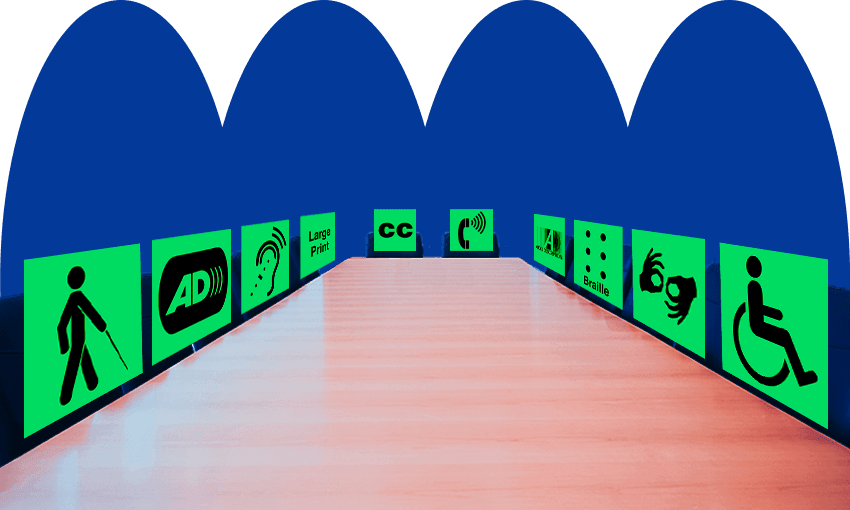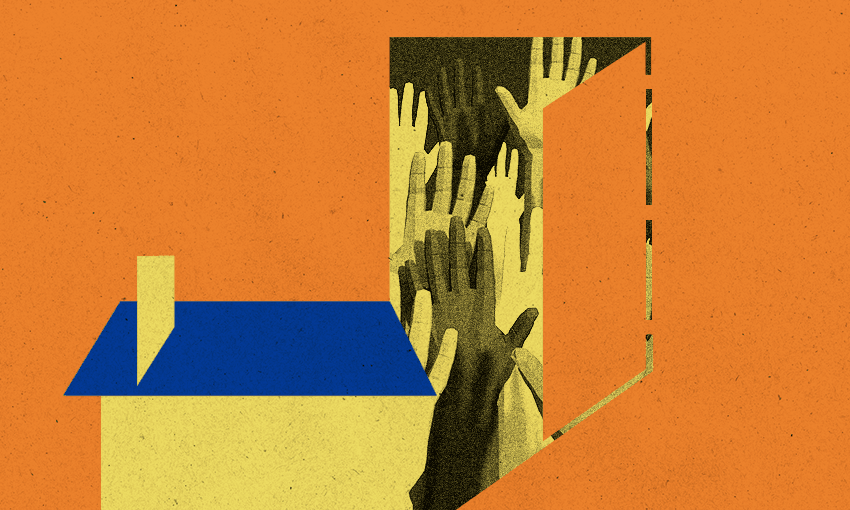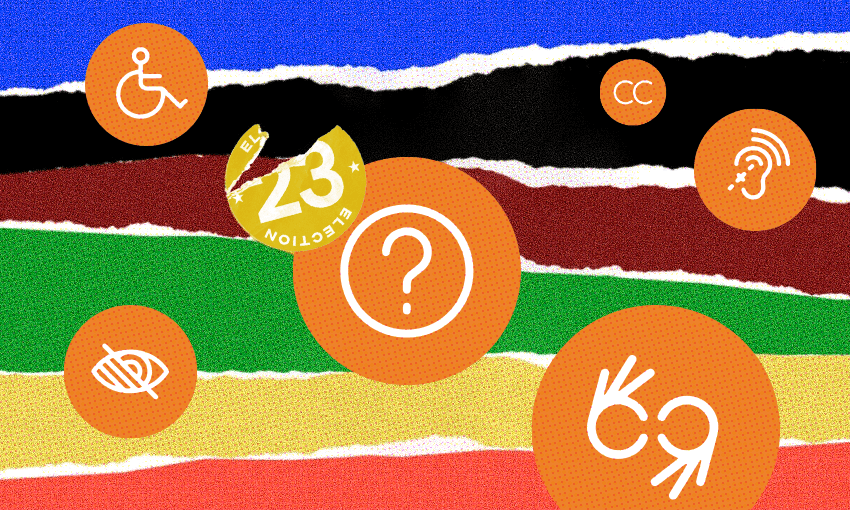Looking at the election policies laid out before New Zealanders this year makes you feel like you’ve been transported back to the 1980s, writes disability advocate Colleen Brown.
I have always seen New Zealand as a great place to live and a country based on “fairness”. I had a fairly normal post-war childhood and upbringing which shaped my view of New Zealand – a society where reason, logic and intelligent debate can make a difference.
When my son Travers was born with Down’s syndrome almost 40 years ago, everyone was supportive, kind and well-intentioned, but the law often fell far short. His life expectations were limited because of his intellectual disability. People with disabilities, parents, families and organisations have been fighting for years for inclusion, dignity and respect at all levels of society. Looking at the election policies now before New Zealanders, it feels like a step back in time to the 1980s.
The public needs to understand that the policies we live by are disabling people. We need policies that enable us to participate fully in our communities and society at large. When policies are inclusive, life is much easier. Accessible housing, public transport, community funding, jobs are all basic rights. When these are violated, life becomes extremely difficult and creates huge inequalities. So the big question for the disability community, as it is every three years, is: “Where does this election leave us?”
 Image: Bianca Cross
Image: Bianca Cross
All voters should read the election policies on Policy.nz, which break down the policies in an easy to understand way. It focuses on the four major parties and tries to be impartial, but the lack of awareness and understanding of the needs and aspirations of the disability community is evident from the stated intent of the various party policies. It should be noted that many of the Green Party’s policies will resonate with the disability sector.
The prejudice and ignorance were on full display for all to see. I felt like I lived in a parallel universe. Who are these people who would try to abolish the government agencies we rely on to achieve justice for our families with disabilities? As a volunteer disability advocate, I have used the Human Rights Commission (HRC) to extract a simple apology from a school that defended a teacher who thought it was okay to belittle a child with a disability in front of his classmates. The disability community turns to the HRC all the time to find out how people with disabilities are being treated, what laws need updating, and what our rights are.
Looking at the major planned policies that are lifelines for disabled people, some of the things that make life bearable will be gone. The institutions the disability community relies on to “test” existing laws and measures are gone (Act). Relief from paying the $5 for prescription drugs is gone (National). Note to National: not all disabled people have a community service card. That $5 makes a difference in an already-scarce budget and allows for extra meat and vegetable rations. The fair wage agreement is gone. Removing it will disproportionately disadvantage disabled people (Act and National).
Schools are clamoring for more trained support for students with learning needs. The Greens acknowledge and address this in their 11 disability policies. They also recognise the need for advocacy. The Advocacy Council was set up under the Fourth Labour Government in 1989. The National Party dismantled it when it came to power in 1990 – again a hard-fought defeat. Thirty years of information was lost about the systemic problems facing the disability sector.
Labour has chosen to maintain the status quo, maintaining grants and key fees. These have made a huge difference to many disabled people’s lives. Winter energy allowances, transport subsidies and free prescriptions all mean a lot when you’re living on a limited income and benefits. A meaningful Labour policy that has gone largely unnoticed is linking benefits to wage increases rather than the Consumer Price Index (CPI). This is a catch-up policy. Currently, disability recipients like Travers have their main benefit adjusted to match the way pensions adjust, which have been linked to average wage increases for many years. Disabled people on benefits want assurances that this policy will not change.
 Image: Alki Banal
Image: Alki Banal
Having money to cover the basic costs of living that many of us take for granted is important for self-esteem and making you feel like a valued member of society. A big plus for Labor is the establishment of Waikaha (Ministry of Disability). It’s early days and the new ministry cannot cater to the whole disability sector – other ministries must play their part too. But Labor needs to go further. The disability sector needs data – no party has jumped on that. The Child Poverty Action Group has looked at a range of key issues in its policy brief for this election and made recommendations on policy action that is needed now.
The New Zealand Disability Strategy places emphasis on disabled people having choice and control over their lives. But we remain constrained in key areas of education and housing because we lack the data to help us and the Government plan for the future. Special schools are full to capacity and satellite classes are not enough. Children who attend local schools need ongoing support in the classroom. Homeless disabled people are pretty low on the list for social housing. Long-term solutions and benefits require data and bipartisan agreement.
Finding accessible housing is an ongoing challenge for people with disabilities because there just isn’t enough. Currently, Kāinga Ora aims to have at least 15% of new homes built to universal design standards. Disabled people, families and neighbours are lobbying to increase that percentage even further. This makes sense as all indicators show there is an increasing demand for social housing, especially for older people and people with disabilities. Building to universal design standards is also much cheaper than retrofitting existing homes.
One housing policy that is extremely difficult for disabled renters is the right to evict tenants without cause (nationwide). This is a harsh policy for the disability community. When Travers and his friends were looking for an apartment, it was very difficult to find a landlord who would rent to them. Negative attitudes towards marginalized people are long-standing and deeply rooted.
 Image: Alki Banal
Image: Alki Banal
Let’s talk about equality and fairness. To be clear, people with disabilities may need more resources than other citizens to fully participate in society. We called it “fair play.” Subsidies for the things that matter in life: transportation, health care, benefits. Equality is equal rights, status, and opportunity. Equity is the outcome that comes from justice and fairness, and the understanding that support should be given where needed.
No matter how often politicians shout it, no matter how many little phrases they use, all human beings are not created equal, and some people will always need more to live a good life.
I know political parties will be quick to assure the disabled community that they are not being targeted, that these draconian policies do not mean “them”, but that’s the problem – many political parties don’t think about disabled people at all.
Twenty-five percent of the electorate in this country has some kind of disability. If these policies are implemented and people with disabilities are discriminated against, the irony is that the Human Rights Commission may be disbanded and we may not even have a place to complain.
A country is judged by how it treats its most marginalized population. Simply put, New Zealand’s most marginalized citizens are Māori women and girls with disabilities. They are the poorest and most neglected. Is this how we want our “fair” and “decent” country, and ourselves, to be judged?
Before you look at the candidates and parties on your ballot and put your mark on it, take a moment to think about the disabled people you see in your community every day. After 40 years of fighting the very hardest battles, I know for a fact that if we improve the lives of disabled people, we improve the lives of everyone.

